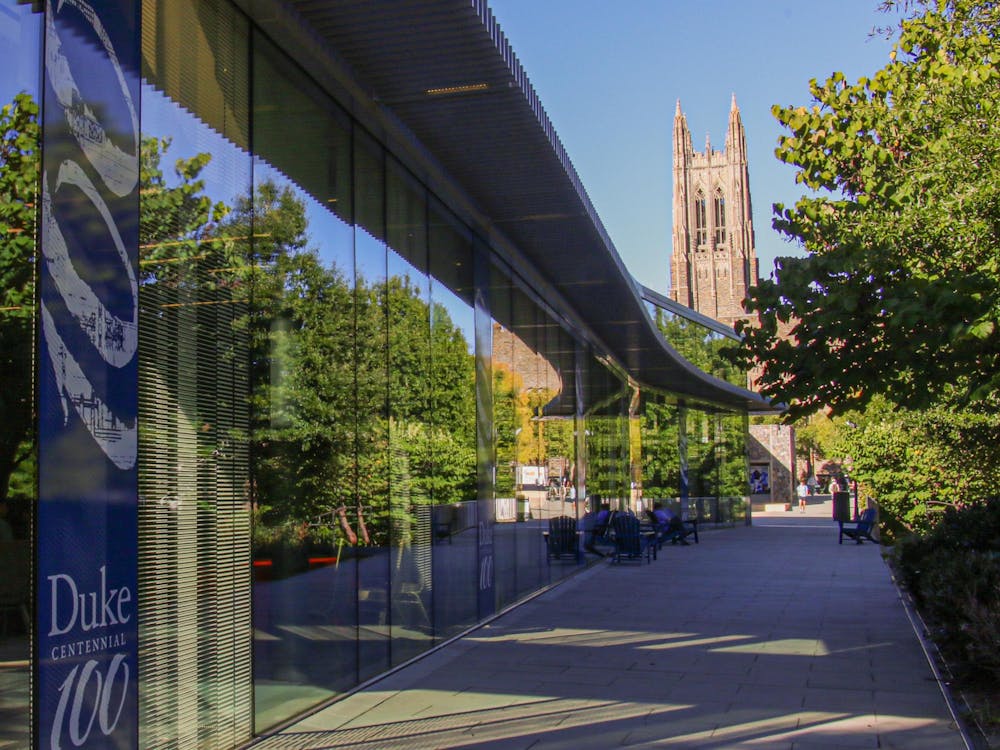Duke community members commemorated the University’s recent carbon neutrality achievement during its Climate Commitment Celebration Thursday.
The event, hosted by the Office of Climate & Sustainability, featured speeches from President Vincent Price and Climate Commitment leaders, as well as a ceremony recognizing Climate Commitment Leadership Award recipients.
The University announced Oct. 16 that it became one of 14 schools to achieve its 2007 pledge to become carbon neutral by 2024, largely through reductions in energy use, investment in renewable energy and the purchase of “high-quality” carbon offsets.
“Our work will not end here,” President Vincent Price said. “In many ways, our work is just beginning.”
Since former President Richard Brodhead signed its pledge in 2007 for Duke to achieve carbon neutrality by 2024, the University has reduced its greenhouse gas emissions by 31% despite growing its physical footprint by 27% and its campus population by 24%. Campus energy use has also been reduced by 42%.
“This is a result [of] a deep investment in utility infrastructure and many different operational aspects across campus,” said Tavey Capps, executive director of climate and sustainability. “... We are expanding to a new, next-generation climate plan that will include more parts of our campus and our health system and other key topics, like transportation and waste.”
Capps noted the University’s use of carbon offsets to maintain net zero carbon emissions, with 232,000 offsets redeemed.
“Offsets were always part of the conversation and Duke's climate plan,” Capps said.
As part of the celebration, administrators previewed the Climate Commitment’s next steps.
The University’s planned solar project will come online in 2025, after being delayed throughout the COVID-19 pandemic over supply chain issues. The project is expected to provide half of the electricity for campus, and upon its completion, University greenhouse gas emissions are predicted to reach half of 2007 levels.
In terms of educational goals, climate fluency — ensuring all students are well-versed in basic climate- and sustainability-related topics — remains a major part of the commitment’s next goals.
“We will train and empower the next generation of Climate Leaders, and our goal is to achieve a highly advanced level of climate fluency by 2028” said Toddi Steelman, vice president and vice provost for climate and sustainability, adding that the entering undergraduate class should have a “high degree” of fluency.
Steelman also announced that the Sanford School of Public Policy, the Pratt School of Engineering and the School of Nursing are piloting programs to work towards climate fluency this year.
Jason Elliott, assistant director of engagement and communications at the Office of Sustainable Duke, announced the recipients of the Climate Commitment Leadership Awards. Over 30 winners were selected based on nominations from colleagues and students. Recipients included student group leaders, Nicholas and Pratt faculty and Duke Kunshan faculty.
Get The Chronicle straight to your inbox
Sign up for our weekly newsletter. Cancel at any time.
Samanyu Gangappa is a Trinity sophomore and local/national news editor for the news department.

